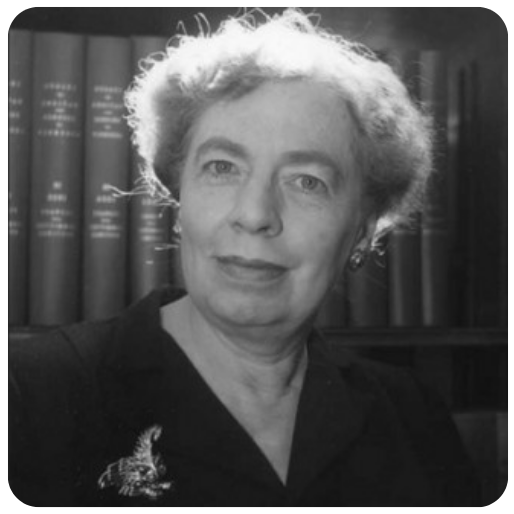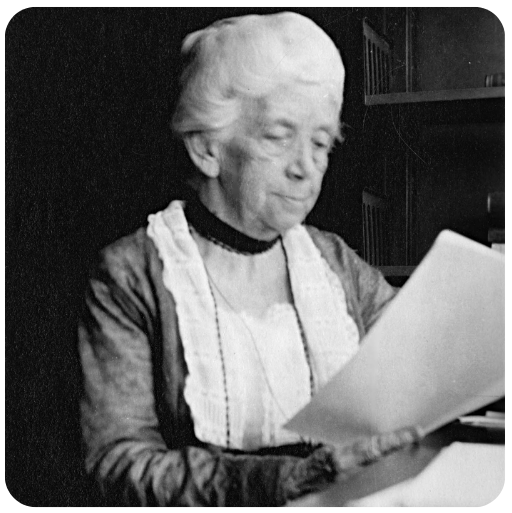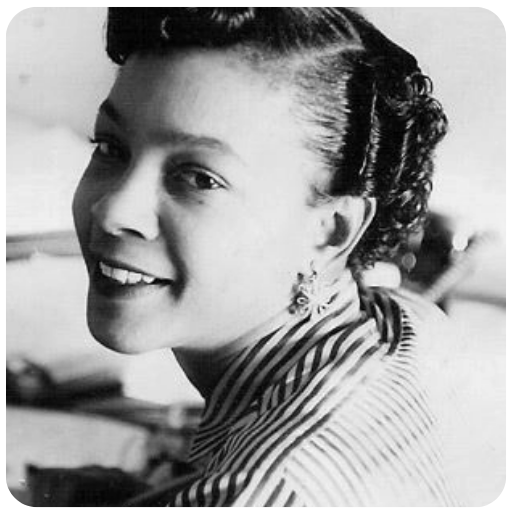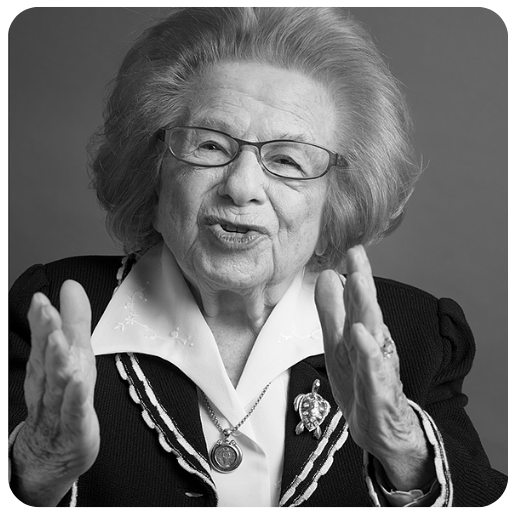Women Trailblazers in Mental Health
Every year, March is designated Women’s History Month to honor women’s contributions in American history. The month was set aside to recognize the specific achievements women have made in a variety of fields; at JFS, we are celebrating women who have impacted the field of psychology, who paved the way for where we are today, and those who promoted equality in a formerly male-dominated field.
MARY WHITON CALKINS:
 Mary Whiton Calkins, a philosopher and psychologist, had the distinction of being the first woman to serve as the president of the American Psychological Association (APA), as well as the American Philosophical Association. She was born in Hartford, Connecticut in 1863, graduated from Smith College, and went on to teach at Wellesley College until her death in 1929. Though she studied at Harvard and passed all the requirements for a Ph.D. with distinction, she was denied her doctoral degree because she was a woman.
Mary Whiton Calkins, a philosopher and psychologist, had the distinction of being the first woman to serve as the president of the American Psychological Association (APA), as well as the American Philosophical Association. She was born in Hartford, Connecticut in 1863, graduated from Smith College, and went on to teach at Wellesley College until her death in 1929. Though she studied at Harvard and passed all the requirements for a Ph.D. with distinction, she was denied her doctoral degree because she was a woman.
“The student trained to reach decisions in the light of logic and of history will be disposed to recognize that, in a democratic country, governed as this is by the suffrage of its citizens, and given over as this is to the principle and practice of educating women, a distinction based on difference of sex is artificial and illogical.”
CHRISTINE LADD-FRANKLIN:
 Christine Ladd-Franklin was not only a female leader in psychology, but also a staunch advocate for women’s rights in academia. She had widely varied academic interests and is known for rejecting Hermann con Helmholtz’s theory of color vision and developing a highly influential theory of her own. Ladd-Franklin studied at John Hopkins University, finishing her dissertation “The Algebra of Logic” in 1882, but was not awarded her doctorate degree until 44 years later. She is remembered today for her work in psychology, as well as for her influence as a pioneer in a field once dominated by men.
Christine Ladd-Franklin was not only a female leader in psychology, but also a staunch advocate for women’s rights in academia. She had widely varied academic interests and is known for rejecting Hermann con Helmholtz’s theory of color vision and developing a highly influential theory of her own. Ladd-Franklin studied at John Hopkins University, finishing her dissertation “The Algebra of Logic” in 1882, but was not awarded her doctorate degree until 44 years later. She is remembered today for her work in psychology, as well as for her influence as a pioneer in a field once dominated by men.
“Is this a good time for you to hold the mediaeval attitude of not admitting me to your coming psychological conference . . . at my very door? So unconscientious, so immoral—worse than that—so unscientific!”
MAMIE PHIPPS CLARK:
 Mamie Phipps Clark was a social psychologist and community health pioneer whose work led to the historic research used to make racial segregation unconstitutional in American public schools. Clark was the first Black woman to receive a doctorate in psychology from Columbia University in 1943 and her work on the doll study played a key role in the Brown v. the Board of Education case in 1951. Her research uncovered the dynamics of racial attitudes in children and helped people recognize how early prejudice and inferiority are introduced in children. Clark also focused much of her work around the Northside Center for Child Development, which provided psychological and educational services to minority children and their families to help them overcome the effects of racism and discrimination. Her research on racial identity helped set the tone for future research on self-concept among minorities.
Mamie Phipps Clark was a social psychologist and community health pioneer whose work led to the historic research used to make racial segregation unconstitutional in American public schools. Clark was the first Black woman to receive a doctorate in psychology from Columbia University in 1943 and her work on the doll study played a key role in the Brown v. the Board of Education case in 1951. Her research uncovered the dynamics of racial attitudes in children and helped people recognize how early prejudice and inferiority are introduced in children. Clark also focused much of her work around the Northside Center for Child Development, which provided psychological and educational services to minority children and their families to help them overcome the effects of racism and discrimination. Her research on racial identity helped set the tone for future research on self-concept among minorities.
“A racist system inevitably destroys and damages human beings; it brutalizes and dehumanizes them, blacks and white alike.”
BRENE BROWN:
 Brené Brown is the founder and CEO of The Daring Way and COURAGEworks, an online learning community that focuses on braver living and loving. Brown is also the founder of Brave Leaders Inc., a group dedicated to making her latest research on leadership development and cultural change accessible to entrepreneurs and leaders alike. Her TED talk, The Power of Vulnerability (2010), is one of the most viewed in the world and discusses self-worth, connectedness, feeling compassion, and the importance of embracing vulnerability.
Brené Brown is the founder and CEO of The Daring Way and COURAGEworks, an online learning community that focuses on braver living and loving. Brown is also the founder of Brave Leaders Inc., a group dedicated to making her latest research on leadership development and cultural change accessible to entrepreneurs and leaders alike. Her TED talk, The Power of Vulnerability (2010), is one of the most viewed in the world and discusses self-worth, connectedness, feeling compassion, and the importance of embracing vulnerability.
“Vulnerability sounds like truth and feels like courage. Truth and courage aren’t always comfortable, but they’re never weakness.”
DR. RUTH WESTHEIMER:
 Karola Ruth Westheimer, better known as Dr. Ruth, is a sex therapist, author, talk show host, and Holocaust survivor. She jumpstarted her career when she gave a lecture to New York broadcasters about the need to sex education programming. Soon after she was hired by WYNY-FM radio station to host her show, Sexually Speaking, on a weekly basis. Her career is prolific and she continues write books, teach, and lecture, in addition to her strong social media following. Dr. Ruth’s non-judgmental attitude to fans’ sexual queries boosted her popularity and helped end the stigma around discussing sexual health and sexual education.
Karola Ruth Westheimer, better known as Dr. Ruth, is a sex therapist, author, talk show host, and Holocaust survivor. She jumpstarted her career when she gave a lecture to New York broadcasters about the need to sex education programming. Soon after she was hired by WYNY-FM radio station to host her show, Sexually Speaking, on a weekly basis. Her career is prolific and she continues write books, teach, and lecture, in addition to her strong social media following. Dr. Ruth’s non-judgmental attitude to fans’ sexual queries boosted her popularity and helped end the stigma around discussing sexual health and sexual education.
“If you’re facing a problem, don’t tell yourself that you can’t do it. Convince yourself that you have the strength to deal with almost anything because of the way you were raised. And you do!”
ANNA FREUD:
 Anna Freud, daughter of Sigmund Freud, is highly regarded for her word expanding her father’s ideas and for helping develop the field of child psychotherapy. She influenced other psychologists like Erik Erikson, introduced the concept of defense mechanisms, and expanded interest in the field of child psychology. Freud’s work highlighted the significance of abandonment and attachment as they influence the developmental phases, uncovered the importance of the ego and its ability to be socially manipulated, and recognized the key role of independence and expression in childhood development.
Anna Freud, daughter of Sigmund Freud, is highly regarded for her word expanding her father’s ideas and for helping develop the field of child psychotherapy. She influenced other psychologists like Erik Erikson, introduced the concept of defense mechanisms, and expanded interest in the field of child psychology. Freud’s work highlighted the significance of abandonment and attachment as they influence the developmental phases, uncovered the importance of the ego and its ability to be socially manipulated, and recognized the key role of independence and expression in childhood development.
“I was always looking outside myself for strength and confidence but it comes from within. It is there all the time.”
These iconic women who helped advance the field of psychology, fought for gender equality, and influenced other pillars in the field. For more information on the women referenced here, please view our sources.
Happy Women’s History Month!
Sources:
- 18 Female Leaders in Psychology who Rock! from HealthyPsych
- Iconic Women in Psychology History from South University
- The Women Who Changed Psychology from VeryWell Mind
- Dr. Ruth Westheimer Biography from Biography.com

